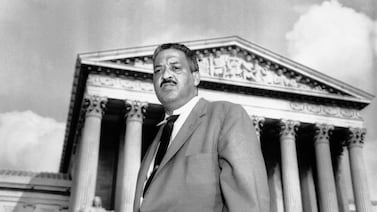Denver school board members shouldn’t speak on behalf of the board or claim to exercise board authority when they post on social media according to a new policy the board unanimously adopted Thursday evening.
The social media policy — a single sentence added to a broader policy on board member conduct — aligns with a March 15 U.S. Supreme Court ruling that could give public officials more freedom to block critics or delete their comments.
Originally, the board was considering a longer social media policy that prohibited board members from blocking people or deleting comments on board members’ official accounts based on the views expressed. While Colorado law already gives elected officials the authority to block or ban people from personal accounts, the constitutionality of that law hasn’t been tested in federal court.
The draft policy also said board members who want to discuss Denver Public Schools business on social media should do so on an official account.
But after the high court ruling, the board changed the policy language so it matched the language in the decision. The new policy doesn’t make the same distinctions between personal and official accounts as the original draft.
The board’s social media policy comes at a time when public officials often face personal attacks, and courts are trying to provide answers about what constitutes official business and how far the public’s right to free speech extends.
In September, a Denver Public Schools parent sued former school board member Auon’tai Anderson after he blocked her on Facebook but later settled the case. Anderson, a prolific social media user, spent four years on the board but did not run for re-election this past November.
The Denver board’s new social media policy says, “When posting on social media, Board Members shall not state they have actual authority to speak on behalf of the Board on a particular matter, and shall not purport to exercise any Board authority in their social media posts.”
Under the new Supreme Court standard, public officials who aren’t acting with government authority or in their official capacity are similar to private citizens posting about their jobs. That means they wouldn’t be violating anybody’s First Amendment rights if they deleted comments or blocked or banned users.
The March 15 Supreme Court ruling — in a case called Lindke v. Freed — cautioned that each case must be considered based on the relevant facts. If public officials are acting in their official capacity on personal social media accounts, it’s possible they can still be sued for blocking people.
Ann Schimke is a senior reporter at Chalkbeat, covering early childhood issues. Contact Ann at aschimke@chalkbeat.org.








